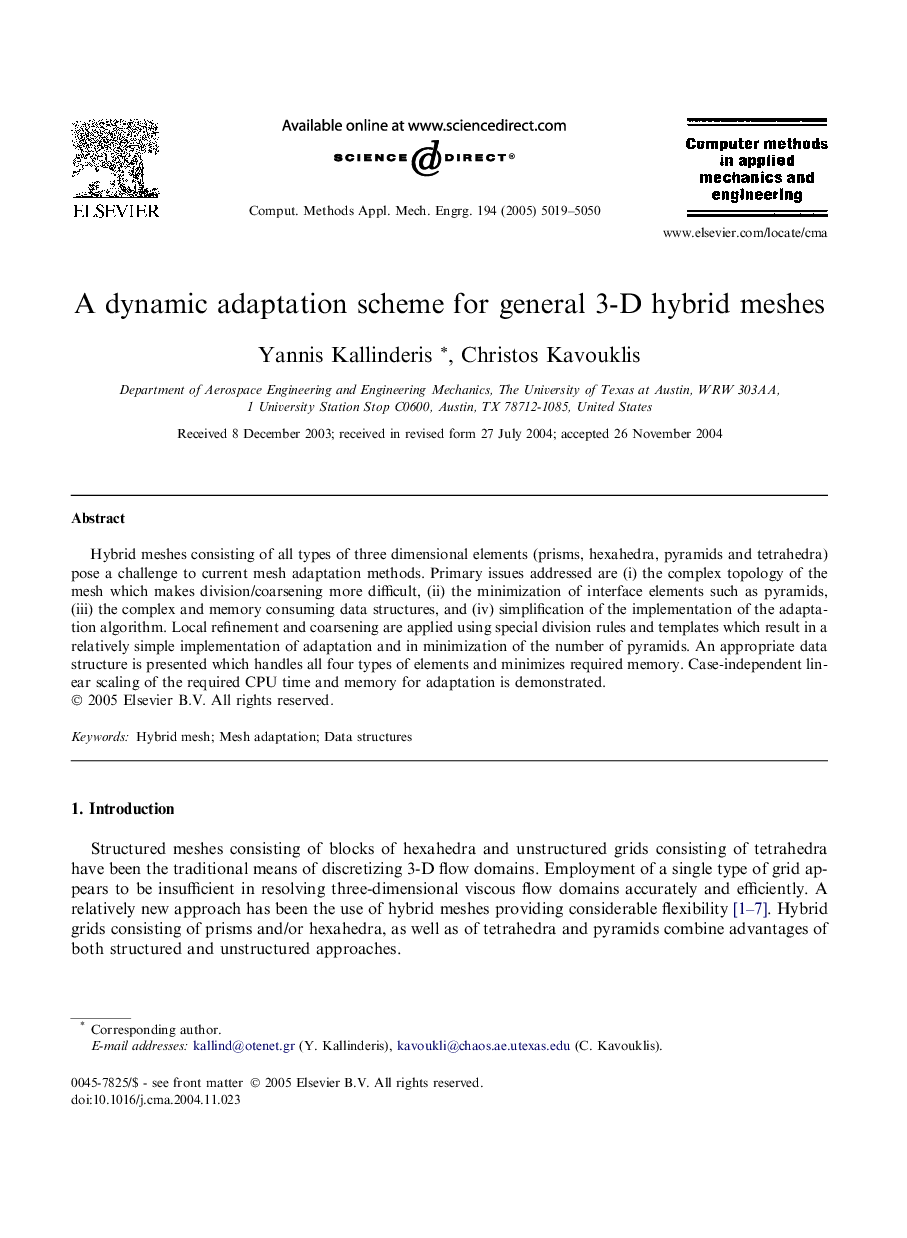| Article ID | Journal | Published Year | Pages | File Type |
|---|---|---|---|---|
| 500476 | Computer Methods in Applied Mechanics and Engineering | 2005 | 32 Pages |
Hybrid meshes consisting of all types of three dimensional elements (prisms, hexahedra, pyramids and tetrahedra) pose a challenge to current mesh adaptation methods. Primary issues addressed are (i) the complex topology of the mesh which makes division/coarsening more difficult, (ii) the minimization of interface elements such as pyramids, (iii) the complex and memory consuming data structures, and (iv) simplification of the implementation of the adaptation algorithm. Local refinement and coarsening are applied using special division rules and templates which result in a relatively simple implementation of adaptation and in minimization of the number of pyramids. An appropriate data structure is presented which handles all four types of elements and minimizes required memory. Case-independent linear scaling of the required CPU time and memory for adaptation is demonstrated.
